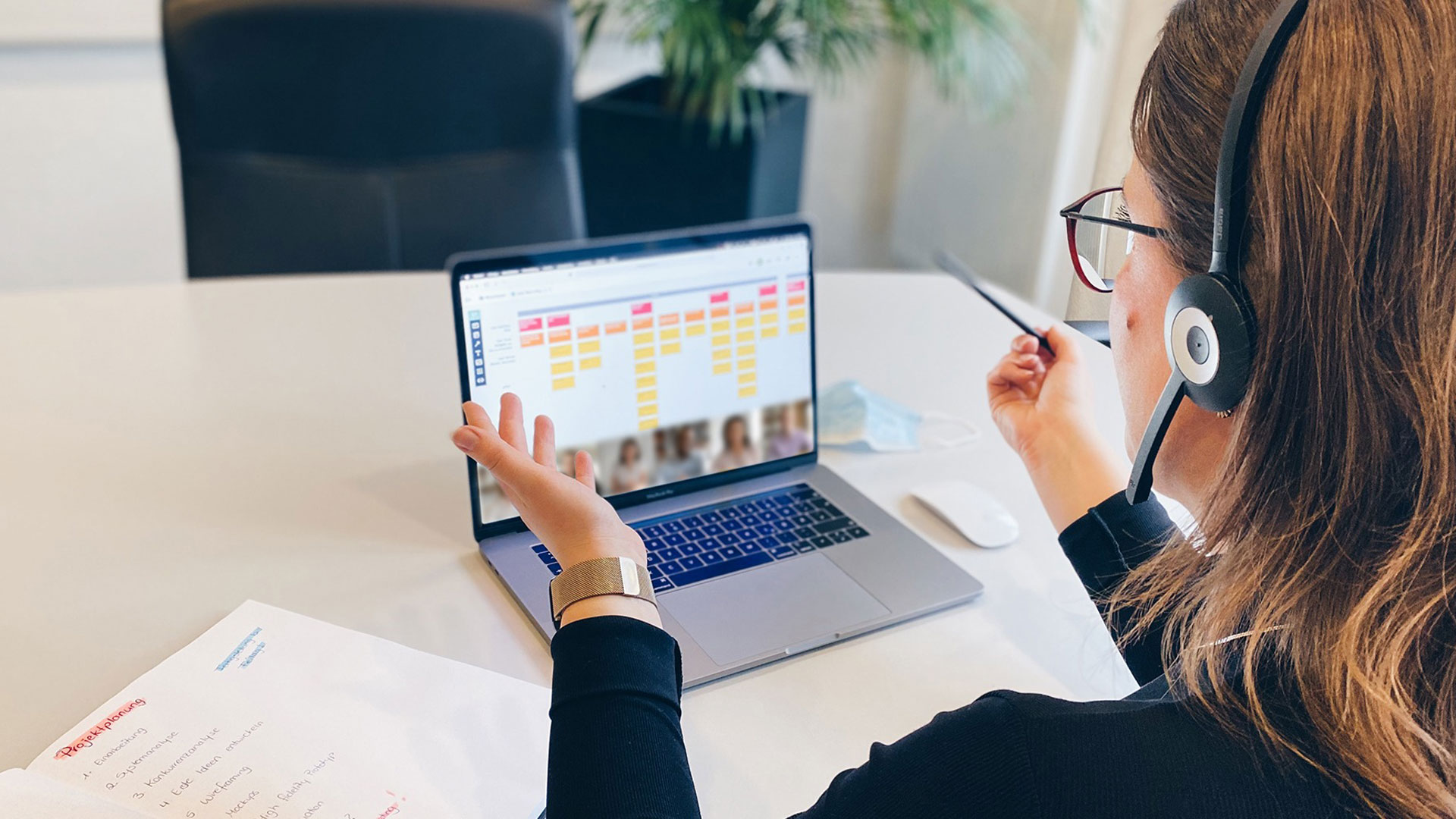The future of office and collaboration is currently a topic of intense discussion in the media. The COVID-19 pandemic has clearly demonstrated the significance of digitalization and flexibility within businesses. For us, these new demands have become integral aspects of our work routine: flexible remote work models and virtual customer interactions.
The introduction of remote work was accelerated by the pandemic, but the virtual handling of client meetings and workshops has also gained prominence. Even creative sessions, such as our User Experience workshops in January, were successfully conducted virtually – a possibility that seemed implausible before. This achievement is made possible through appropriate preparation and the right blend of methodologies.
Practical approaches, like breaking down full-day workshops into short, well-structured segments, allow participants to manage their daily tasks efficiently. Tools play a pivotal role in simulating personal interaction, like collaborative whiteboarding, in a virtual setting. A key point is maintaining continuous and active engagement to keep participants attentive.
It’s possible that virtual meetings might establish themselves as the new norm in the future, with in-person formats becoming the exception. Regardless of the trajectory, we are prepared to adapt flexibly to the changing landscape.
